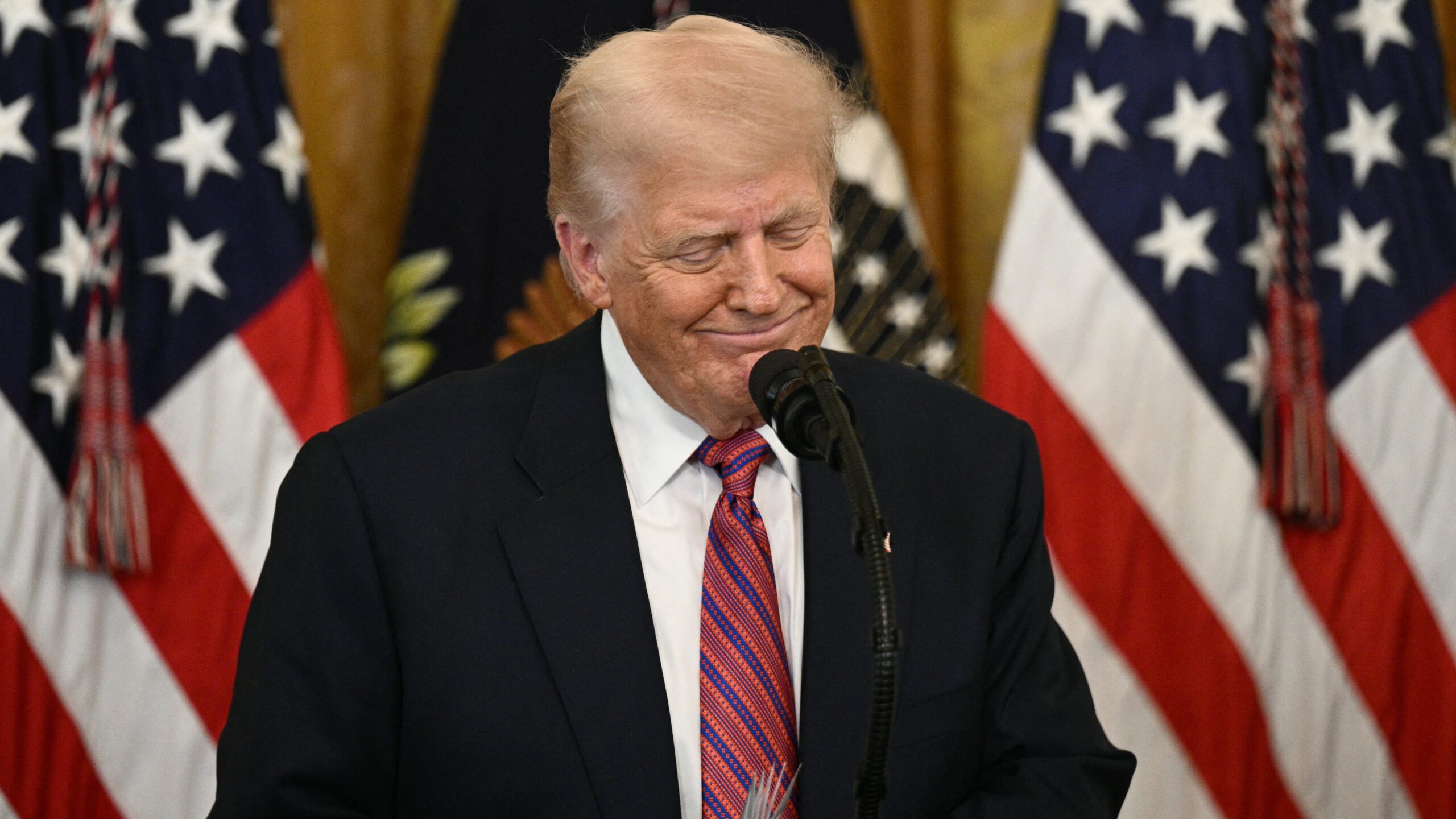UPDATE: President Donald Trump has just signed the GENIUS Act, a groundbreaking bill that legitimizes cryptocurrency and could enrich the president personally, critics claim. This pivotal legislation, finalized on October 20, 2023, establishes the first regulatory framework for stablecoins, digital currencies pegged to fiat currencies like the U.S. dollar.
The bill, which passed the House of Representatives with bipartisan support by a vote of 308 to 122 on October 19, follows a 68 to 30 Senate approval last month. Proponents tout it as a necessary step for the U.S. financial system, while opponents express deep concerns about consumer protections and potential conflicts of interest.
Critics argue that Trump stands to profit immensely from this legislation, as it allows him and his family to engage in the stablecoin market. An amendment aimed at prohibiting the president and top officials from profiting off stablecoins was notably absent from the final bill. Meghan Faulkner from the watchdog group Citizens for Responsibility and Ethics in Washington (CREW) stated,
“There would have been a way to pass this legislation without the president himself being able to benefit from whatever legitimacy this could confer upon stablecoins.”
With the legislation in place, Trump could potentially issue his own payment stablecoin, raising serious ethical concerns. Bilal Baydoun, a director at the Roosevelt Institute, warned,
“If the president can basically issue his own currency, then the White House just becomes a storefront for personal gain.”
Trump’s involvement in the crypto sector has been extensive. During his campaign, he launched World Liberty Financial, a crypto firm run by his sons and close associates, and reported making $57 million from token sales in the last year alone. Just before taking office, he introduced the $TRUMP meme coin and recently launched the stablecoin USD1, which is already being used in a $2 billion investment by an Abu Dhabi firm in Binance. Each transaction involving USD1 benefits the Trump family through transaction fees, leading Baydoun to estimate potential earnings in the hundreds of millions.
Trump’s shift from skepticism to enthusiasm for cryptocurrency has been stark. Previously, he labeled bitcoin and other digital currencies as “not money” with a value “based on thin air.” However, he has embraced the crypto industry, even acknowledging its support during his campaign while surrounded by industry leaders.
Since taking office, the push for crypto deregulation has intensified, with the Justice Department scaling back enforcement actions against crypto firms. In May, Trump invited top holders of the $TRUMP token to his private club, igniting further ethical concerns.
The president’s crypto agenda is bolstered by a staff with significant crypto holdings—an analysis by CREW revealed that nineteen White House officials own between $875,000 and $2.35 million in crypto assets. This includes substantial holdings in Bitcoin and Ethereum, raising questions about conflicts of interest at the highest levels of government.
As the implications of the GENIUS Act unfold, stakeholders are watching closely. With Trump’s financial interests now aligned with the burgeoning crypto market, the potential for corruption looms large. The rush of investments into USD1 could accelerate, further enriching the Trump family while raising alarms about the integrity of U.S. financial regulations.
As developments continue, the focus remains on how this legislation will reshape the cryptocurrency landscape and the ethical responsibilities of those in power. Stay tuned for more updates on this evolving story.
